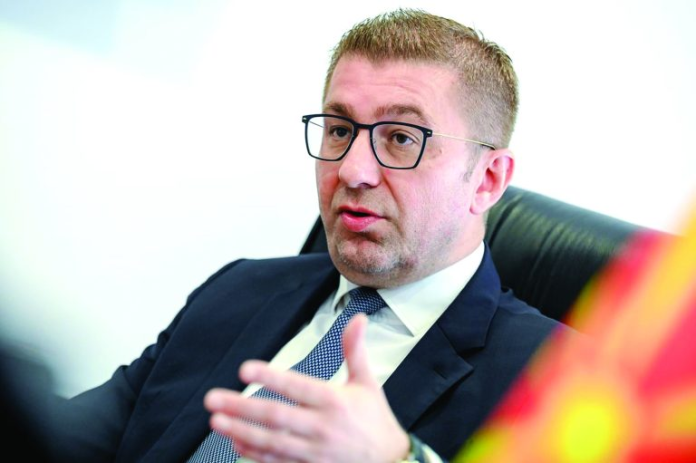North Macedonia’s Prime Minister Hristijan Mickoski has strongly criticised what he describes as the European Union’s “double standards” in upholding human rights and national identity, particularly in the context of his country’s EU accession process.
Speaking at the Munich Security Conference on February 16 during a panel on Balkan integration into the EU, Mickoski highlighted that North Macedonia’s journey toward EU membership began earlier than that of Albania or even Croatia, according to a government statement.
However, he argued that the EU’s much-vaunted merit-based system for accession negotiations had not been applied fairly to North Macedonia.
The country’s integration process was initially blocked by Greece due to a dispute over its name. After North Macedonia agreed to change its name from “Macedonia,” the process resumed. However, progress was again stalled due to Bulgaria’s demand that North Macedonia recognise Bulgarians as a constitutional ethnic group as a precondition for starting EU negotiations.
Unfortunately, some EU member states from the Balkans have carried their bilateral disagreements to Brussels instead of embracing European values.
The prime minister also expressed concerns about external interference in North Macedonia’s internal affairs, citing past examples such as the country’s name change and alterations to its national flag.
Mickoski’s remarks were partly a response to a speech by US Vice-President JD Vance, who had earlier criticised European democracies, arguing that the continent’s greatest threat comes not from Russia or China but “from within.”
Reacting to Vance’s comments, Mickoski stated that his speech was seen as interference in internal affairs.
But changing our country’s name, changing our flag, changing our currency–are these not interference? How long do we have to suffer from double standards? We are not talking about a process based on the merit system here, we are talking about bilateral disputes that should have nothing in common with European values.
North Macedonia is among the top five per capita donors to Ukraine and has met NATO’s requirement of allocating 2% of GDP to defence spending. Mickoski concluded by stressing that European unity cannot be complete without the full inclusion of all aspiring member states, calling for a fair and consistent application of EU principles in the accession process.
